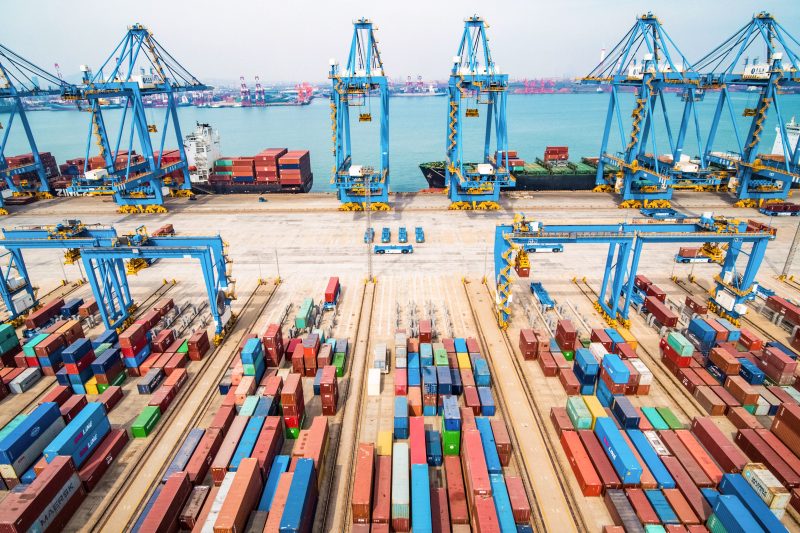Asian markets stuck in the red as traders await crunch talks
The two-day trade talks in Washington have taken on extra significance since Donald Trump said he will hike tariffs on $200 billion of Chinese imports from Friday (STR)
Hong Kong (AFP) – Asian markets once again fell into the red on Thursday as investors anxiously await the start of high-stakes trade talks between China and the United States.
After several rounds of negotiations, the two-day meeting in Washington, which kicks off later in the day, has taken on huge significance after Donald Trump threatened to ramp up tariffs on Chinese goods from Friday blaming backsliding by Beijing.
The president’s remarks Sunday battered global equities and fuelled fears the economic superpowers — who appeared just last week to be nearing a deal — could become entangled in a brutal trade war with worldwide consequences.
While Trump has looked to soothe concerns — telling a rally Wednesday that “whatever happens, don’t worry about it. It will work out. It always does” — investors are on edge.
China, for its part, said an escalation was “not in the interests of the two countries’ people” but warned it would impose “necessary countermeasures” if the tariffs on $200 billion of goods were more than doubled Friday.
In morning trade Hong Kong stocks sank 1.6 percent and Shanghai shed one percent while Tokyo was off 1.2 percent at the break.
Singapore, Seoul, Taipei, Jakarta and Manila were also sharply lower though Sydney and Wellington chalked up small gains.
“Volatility in the markets is really headline driven, particularly around the fluid conversations between the US and China,” Charlie Ripley, a senior investment strategist at Allianz Investment Management, said.
“We’ll have to see how this thing plays out at the end of the week… but we would continue to expect this environment as long as the headlines are going back-and-forth.”
– Both sides hungry –
OANDA senior market analyst Jeffrey Halley said that markets “could move sharply, either way, depending on the news flows, with equities and oil the most vulnerable to the outcome of the trade talks”.
Still, there is still some optimism that the talks will eventually end in a deal.
“Both sides are so hungry to get this thing done,” said Welles Orr, a senior trade official under President George H. W. Bush.
“The incentive is strong for the US, because they’ve made such good headway. On the other hand, the Chinese want to show they can be serious negotiators and deliver on their commitments.”
The uncertainty flowing through trading floors weighed on currency markets with higher-yielding, riskier units such as the Australian dollar, South Korean won and Indonesian rupiah all down against the greenback.
China’s yuan also extended losses and is sitting at a four-month low.
On oil markets both main contracts resumed their downward spiral with the trade war fear overshadowing a drop in US inventories, which had helped spark a pick-up in the market Wednesday.
However, there are expectations that prices will recover.
“As (the) trade war simmers, Asia’s unquenching demand for oil supply stands tall, suggesting much stronger market conditions that initially thought,” Stephen Innes of SPI Asset Management said in a note.
“From a fundamental point of view, OPEC supply discipline (in capping output) is still in check, and US supplies show tighter markets than expected, while Asia demand is still robust.”
– Key figures around 0230 GMT –
Tokyo – Nikkei 225: DOWN 1.2 percent at 21,334.13 (break)
Hong Kong – Hang Seng: DOWN 1.6 percent at 28,537.51
Shanghai – Composite: DOWN 1.0 percent at 2,865.41
Euro/dollar: UP at $1.1188 from $1.1193 at 2100 GMT
Pound/dollar: UP at $1.3009 from $1.3004
Dollar/yen: DOWN at 109.92 yen from 110.10 yen
Oil – West Texas Intermediate: DOWN 55 cents at $61.57 per barrel
Oil – Brent Crude: DOWN 63 cents at $69.74 per barrel
New York – Dow: FLAT at 25,967.33 (close)
London – FTSE 100: UP 0.2 percent at 7,271.00 (close)
— Bloomberg News contributed to this story —
Disclaimer: Validity of the above story is for 7 Days from original date of publishing. Source: AFP.


